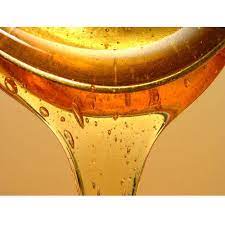TestOil’s expert analysts have the experience with marine oils to conduct reliable analysis and deliver actionable results the same day they receive the sample. This is an excellent alternative to expensive and time-consuming on site testing and analysis.
“We know the lubrication-related issues that marine industries face today,” explains TestOil Field/Data Analyst Matt McMahon. “And we know how to leverage the power of oil analysis to mitigate those issues.”
Lubricants in marine applications have always been very susceptible to water contamination. More recently they’ve had to contend with the effects of low sulfur marine fuel as well.
As regulators continue to restrict the allowable sulfur in marine fuel, lubrication suffers; the process that reduces the sulfur also reduces the fuel's natural lubricating properties. While sulfur is not a lubricant in itself, it can combine with nickel to form an alloy that increases lubricity.
Monitoring the base number (BN) is crucial for ensuring that there is enough alkaline reserve to neutralize any acids that are generated using sulfur containing fuels. The test should be performed frequently and at regular intervals. Testing for ferrous content is also important since it will identify the presence of any debris that is shed from the cylinder wall when excessive wear occurs. Ferrous wear concentration and elemental spectroscopy together will indicate total iron content.
All of this makes it essential to follow a disciplined oil maintenance program anchored in routine and advanced oil analysis that delivers same day results. “There are many parts in marine systems that require lubrication,” Matt adds. “In general, we recommend the same types of tests that we recommend for industrial machinery, with some exceptions. For example, military cargo vessels are often idled in the water for quite a while, creating a breeding ground for rust and corrosion.”
In addition to basic testing, TestOil’s recommended musts for marine oil analysis include, but are not limited to, the following:
- Main Engines: Ferrous wear concentration to closely monitor for abnormal wear, and BN to monitor the remaining alkalinity package in the oil
- Auxiliary Engines: BN to monitor remaining alkalinity in the oil
- Diesel Generators: Routine analysis including BN to monitor remaining alkalinity in the oil
- Hydraulic Systems (including crane hydraulics): Particle count to monitor fluid cleanliness levels and acid number (AN) to monitor fluid degradation
- Other Ship Systems: Such as the winch, gearbox, split drive and stern tube generally require only routine testing
“Our lab is always eager to work with new marine customers,” Matt says. “We are confident that we can deliver the type of testing they need efficiently and effectively.” For more information on working with TestOil for marine oil analysis and for information on training programs, visit www.testoil.com. Contact: 216-251-2510; sales@testoil.com.
About TestOil
With more than 30 years of experience in the oil analysis industry, TestOil focuses exclusively on assisting industrial facilities with reducing maintenance costs and avoiding unexpected downtime through oil analysis program implementation. As industry experts in diagnosing oil-related issues in equipment such as turbines, hydraulics, gearboxes, pumps, compressors and diesel generators, TestOil provides customers with a guarantee of same-day turnaround on all routine testing. With in-house, certified training professionals, TestOil offers lubrication and oil analysis training, private onsite training, certification training and exams, and educational webinars. For more information on partnering with TestOil on oil analysis programs or training opportunities visit www.testoil.com.






